Medical Oncologists and Hematologists
Medical Oncologists and Hematologists care for our patients from the moment of diagnosis throughout treatment and recovery.

Oncologists specialize in cancer treatment through medications, such as chemotherapy, hormones and pain management medication.
Medical Oncologists care for the patient from the moment of diagnosis throughout the course of treatment and past recovery. The focus of medical oncology is on “systemic therapy”, or providing treatments against cancer that has or could spread to other parts of the body, or in providing treatments to help shrink a cancerous tumor so the surgeon can more effectively remove it. Our experts also coordinate treatment given by other specialists.
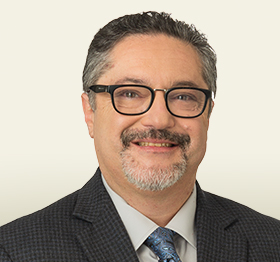
Alexander Starr, MD
Medical Oncology, Hematology, Internal Medicine

Anthony J. Jaslowski, MD, FACP
Medical Oncology and Hematology
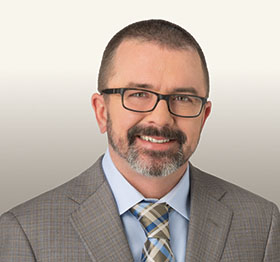
Brian L. Burnette, MD
Hematology, Medical Oncology, Internal Medicine
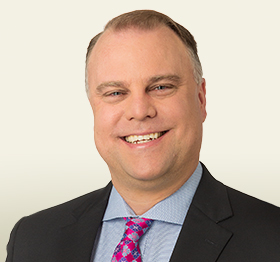
David L. Groteluschen, MD
Medical Oncology, Internal Medicine
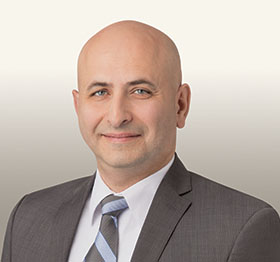
Edgard Badine, MBA, MD
Medical Oncology and Hematology

J. Mitchell Winkler, MD
Hematology, Medical Oncology, Internal Medicine, Hospice & Palliative Care
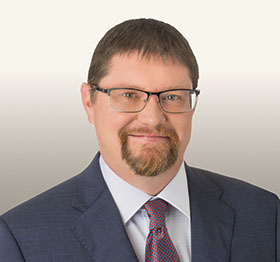
Matthew L. Ryan, MD
Hematology, Medical Oncology, Internal Medicine

Ruth C. Warren, DO
Medical Oncology, Internal Medicine
Biological Therapy
Biotherapy is short for biologic therapy. It is also called immunotherapy because it is treatment that works with the immune system. It can help fight cancer or help control side effects from other cancer treatments like chemotherapy.
This can be done in two ways:
- Stimulating your own immune system to work harder or smarter. This is called active immunotherapy.
- Using immune system components (such as antibodies) made in a lab. This is called passive immunotherapy.
Doctors believe biotherapy may:
- Stop or slow the growth of cancer cells.
- Make it easier for the immune system to destroy cancer cells.
- Keep cancer from spreading to other parts of the body.
Immunotherapy
Most often used along with or after another type of treatment to boost its effects.
Today, biotherapy plays a fairly small role in treating most cancers. It seems to work best when treating smaller, early stage cancers, and may be less helpful for more advanced disease. Its main role at this time is making other forms of treatment better, but newer treatments are being tested that may have a greater impact on the outlook for people with cancer in the future.
Chemotherapy
Chemotherapy is a treatment that uses drugs to destroy cancer cells. It is often called simply “chemo.”
Chemotherapy is used to:
- Destroy cancer cells
- Stop cancer cells from spreading
- Slow the growth of cancer cells
Chemotherapy can be given alone or with other treatments. It can help other treatments work better. A patient may get chemotherapy before or after surgery or radiation therapy.
Different chemo drugs are used to treat different cancers. The drugs go through the whole body to kill the cancer cells. Usually, more than one chemo drug is used for a patient so the drugs can work together to kill more cancer cells. This is called combination chemotherapy.
Chemotherapy can be given in these forms:
- An IV (intravenously)
- A shot (injection) into a muscle or other part of the body
- A pill or a liquid that is swallowed
- A cream that is rubbed on the skin
If your prescribed chemo is a pill or liquid, it can often be taken it at home, according to doctor’s directions. Chemo shots are given in a hospital, clinic or at home. But most often, chemo is given into the veins through a needle or tiny plastic tube called a catheter. This is called IV (intravenous) chemo. At St. Vincent Hospital Cancer Centers, IV chemo can be administered in a private, semi-private or general infusion area—whatever is most comfortable for you.
You may get chemo once a day, once a week, or even once a month. It depends on the type of cancer and chemo. The length of time also depends on how your body responds to the drugs. The treatment period is followed by a period of rest allowing the body a chance to build healthy new cells.
Hormone Therapy
Hormone therapy for cancer – also called endocrine therapy – alters the body’s hormones to help control or cure cancer. Hormone therapy, which can be done with medications or surgery, is most frequently used to treat breast and prostate cancer. The type of hormone therapy a person receives depends upon:
- Type and size of the tumor
- Age of the person
- Presence of hormone receptors on the tumor
- Other factors
Targeted Therapy
Targeted therapy is a new type of cancer treatment that uses drugs or other substances to identify and attack cancer cells while doing little damage to normal cells. Targeted therapies:
- Attack the cancer cells' inner workings – the programming that makes them different from normal, healthy cells
- Alter the way a cancer cell grows, divides, repairs itself, or interacts with other cells
- A major focus of cancer research today